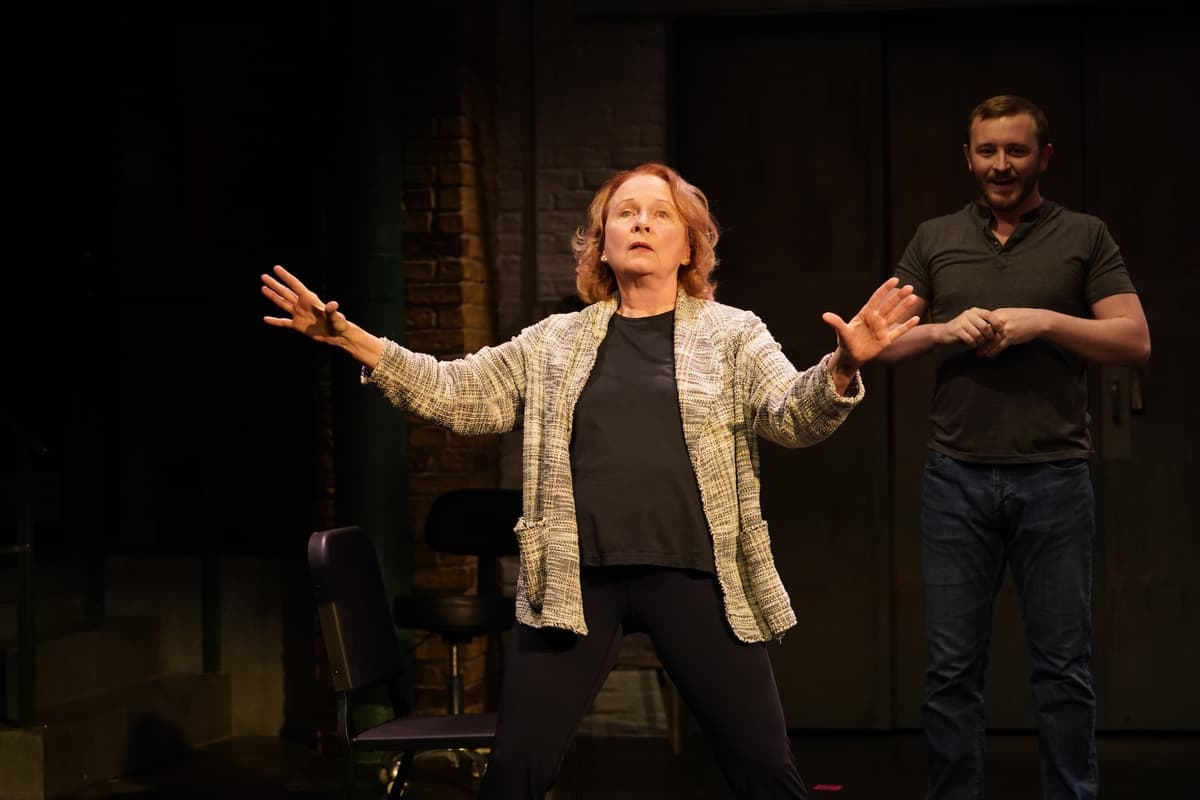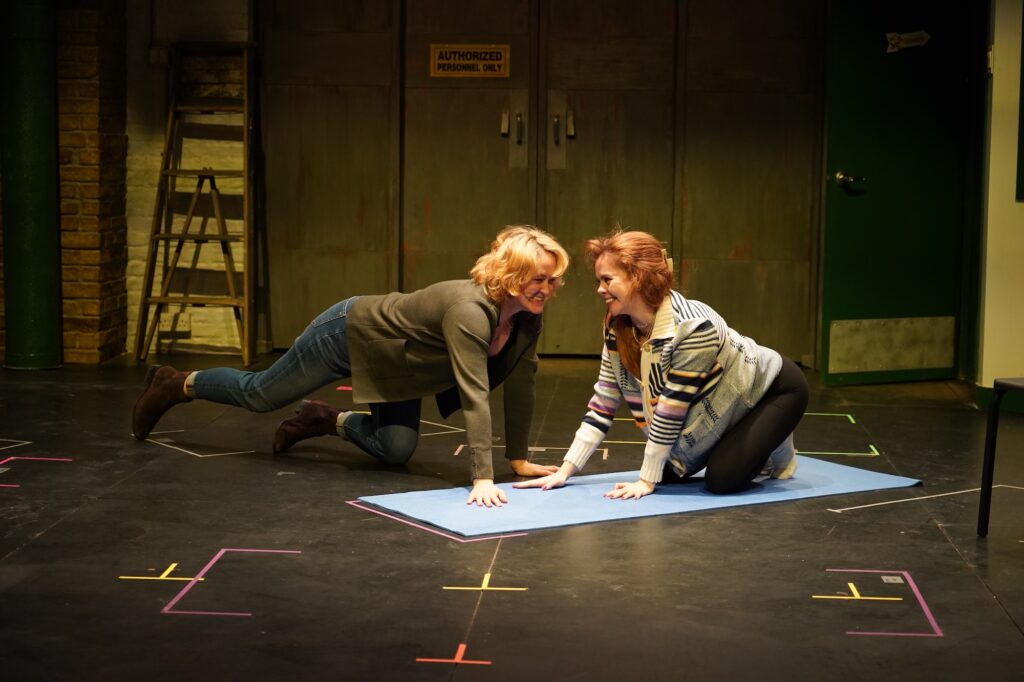Essentially a Farce, ‘Irishtown’ Seems a Bit Breathless Even for That Genre
While the fine actors sustain our attention, playwright Ciara Elizabeth Smyth’s winking jokes and rapid-fire exchanges begin to seem repetitive at points, and Nicola Murphy Dubey’s sometimes overzealous direction doesn’t help.

Roughly a half hour into “Irishtown,” a new one-act comedy by Ciara Elizabeth Smyth, a character named Constance, one of several actors in a Dublin-based theater company, muses, “I’ve just never been in an Irish play with a happy ending.”
This observation, delivered in Irish Repertory Theatre’s world premiere production by the great Kate Burton, is among numerous references to stereotypes and what Ms. Smyth, in a program note, describes as “commodification of culture.” The playwright explains that “Irishtown” was “inspired by putrid green rage, amusement and recognition that my own accent becomes doubly Dublin every time I set foot on American soil.”
Much as I love that image of putrid green rage, it’s the amusement that more obviously defines “Irishtown.” Essentially a farce, the play can feel a bit breathless even for that genre; Ms. Smyth’s winking jokes and rapid-fire exchanges begin to seem repetitive at points, and Nicola Murphy Dubey’s sometimes overzealous direction doesn’t help.
Even so, Ms. Burton and the fine actors accompanying her in this ensemble piece manage to sustain our attention — and, for the most part, our affection — throughout its 90 minutes. The action unfolds in the offices of the Irishtown Players, beginning four weeks before several of its members are due to head to New York to stage a new work by a rising playwright.

Aisling, the writer, is present, as is Poppy, the show’s British director. “I’m sort of experimenting with a new direction, a new kind of style, a sort of clash of genres,” Aisling tells Poppy and the actors, who regard her with a mix of feigned enthusiasm and suppressed alarm that lets us know, immediately, that something is off.
It eventually falls to Constance, the company’s doyenne, whom Ms. Burton imbues with predictable wit and gusto, to break the news to Aisling: “Bottom line is it’s not Irish enough,” the older woman announces. “I think it’s going to bomb.”
All manner of backstage drama ensues, as Aisling reluctantly agrees to let her script remain unlocked for a bit, but is then appalled by observations and antics among both the cast members and Poppy. We learn that the latter was banned from the Royal Shakespeare Company because, as Constance puts it, “She likes to do extra ‘character work’ with certain actors.”
Indeed, as Poppy, Angela Reed is elegant while conveying a sense of barely repressed carnality; her lust is stoked by one performer in particular, Síofra, who happens to be Aisling’s girlfriend. Informing the actress that she has a husband, Poppy points out that she wouldn’t mind being married to a woman, “especially one as beautiful as you,” then quickly adds, “Please don’t report me for that.”
As Síofra, Saorise-Monica Jackson, a gifted comedic actress, suffers the most for Ms. Murphy Dubey’s excessiveness, pouting and preening through much of her time onstage. Brenda Meaney’s acerbic, amusingly defensive Aisling is less cartoonish, and Kevin Oliver Lynch delivers the driest performance as Quin, the only male company member presented here, and the one most adept at irritating Aisling.
Toward the end, there’s a sequence sending up clichés about Irish drama, and the country in general. The Irishtown Players rattle off themes and images attached to their homeland and heritage, from incest and alcoholism to “shockingly green fields … loose sheep, [and] wet cows,” as dutifully listed by Síofra, who then pipes up, “Potatoes!”
If “Irishtown” doesn’t match the depth or, frankly, wit of other plays that Irish Rep has introduced in recent years, Ms. Smyth makes her points efficiently and, with help from the resourceful actors in this staging, entertainingly.

